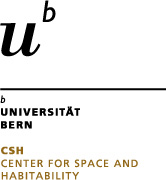Science goals
SenseLife aims at harnessing the potential of full Stokes spectro-polarimetry to remotely detect living organisms in the outer Solar System by exploiting life’s distinctive homochirality. Life’s homochirality is one of the most reliable biomarkers, which has previously demonstrated its capability to unambiguously detect and characterise cyanobacteria, plants and anoxygenic phototrophs. SenseLife will build new series of FlyPol instruments, which will be able to perform high-sensitivity nearly-simultaneous full Stokes spectro-polarimetry in harsh environments. FlyPol instruments will then be deployed in the field to perform in-situ measurements of a range of living organisms found in the relevant ecosystems (e.g. glaciers, mountain lakes) for icy moons. A particular focus will be on the characterisation of sulphur-reducing/methanogens organisms. These data will be used to construct a model database of these benchmark biosignatures, which will in turn be used to interpret the integrated, remote sensing data of the same ecosystems obtained from an airborne platform. SenseLife team will then be in a unique position to determine the sensitivity of full-Stokes spectro-polarimetry to different surface bacterial concentrations and explore the seasonal variations of glacier and mountain lake biosignatures. Capitalising on these results, SenseLife will be able to compute the required thresholds for the remote detectability of living organisms on icy moons with spectro-polarimetry, which may be conducted as soon as the end of the decade with ground- or space-based facilities. Finally, SenseLife will spark pioneering interdisciplinary collaborations that aim to tackle major societal challenges, such as the incidence of high-altitude red algae on global warming and new techniques for non-invasive, in-vivo diagnosis and staging of tumours for enhanced intraoperative decision-making.
SenseLife is an ERC Consolidator grant whose funding has been provided by SERI.
The project's feasibility study (called MERMOZ) was funded by the Centre for Space and Habitability (CSH) and the NCCR PlanetS.
